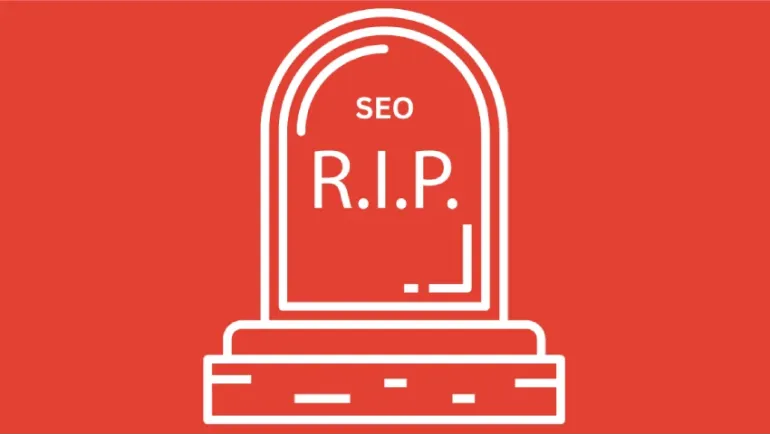
Artificial Intelligence is transforming how we search, write, analyze, and consume content. At the same time, SEO (Search Engine Optimization) still dominates the digital marketing world, influencing how content is created, structured, and ranked. That raises a serious question: is SEO death for AI—or is it actually fueling AI’s evolution?
AI, especially in the form of large language models like ChatGPT or Google's Gemini, is designed to understand natural language, make decisions, and even generate content. But despite these advances, the online world still bows to search engines—and search engines are still ruled by SEO.
That means even AI-generated content must be optimized. It has to follow rules: keywords, meta tags, formatting, headers, backlinks, and more.
This tension leads to a central issue: AI wants to write for people. SEO wants content to rank. And often, those goals don’t align.
Some claim that AI will kill SEO. That’s a myth. In reality, SEO is changing because of AI. Tools like RankMath, SurferSEO, and Clearscope already use AI to analyze top-performing pages and suggest optimizations in real time.
At the same time, content creators are using AI to draft faster, optimize smarter, and produce at scale. That means AI is increasing the volume of SEO-driven content, not replacing it.
What’s actually happening is more nuanced:
AI can generate incredible insight—but when it’s boxed into SEO checklists, the result often feels robotic. That’s ironic, considering AI is supposed to make content less robotic.
SEO-driven AI content sometimes prioritizes rankability over readability. Real human engagement—emotion, storytelling, original perspective—gets lost under headings and H1s.
There’s already a flood of AI-generated, SEO-targeted content clogging the web. It’s not always bad—but it often lacks depth. When SEO becomes the only priority, the internet turns into a content mill. And search engines are responding by cracking down.
On the flip side, AI is revolutionizing how SEO is done. Instead of relying on guesswork, marketers can now get real-time insights into what works. AI-powered tools can:
AI is also powering Search Engine Generative Experiences (SGE)—where traditional rankings are replaced by AI-generated summaries at the top of search results.
In that future, ranking may not matter the same way. Content will still need to be optimized—but the metrics of success will shift toward:
Not exactly. But here’s the core truth:
Bad SEO can kill good AI content. Good SEO can elevate it.
AI isn’t meant to be shackled by keywords—it’s meant to be guided by them. The sweet spot is letting AI handle structure, consistency, and optimization—while humans add creativity, authenticity, and expertise.
Let AI suggest the heading. You write the hook.
Let AI outline the page. You inject the point of view.
Let SEO define the problem. You deliver the real solution.
Users are shifting from keyword searches to natural language questions. AI tools like Google SGE and Perplexity are answering queries directly—no clicks needed.
Engagement metrics like dwell time, bounce rate, and user satisfaction will weigh heavier than perfect optimization. Content that feels human will win.
AI detectors, watermarking, and stricter guidelines will push creators to balance automation with originality. Google’s “Helpful Content” updates are just the start.
SEO isn’t killing AI. And AI isn’t killing SEO. What’s dying is the old way of doing both—gaming algorithms, stuffing keywords, or publishing without purpose.
In this new era, the best results will come from those who:
AI and SEO aren’t enemies. They’re tools. When used right, they make each other better.
So don’t bury SEO—or AI. Just evolve with them.












Comments
There are no comments for this Article.